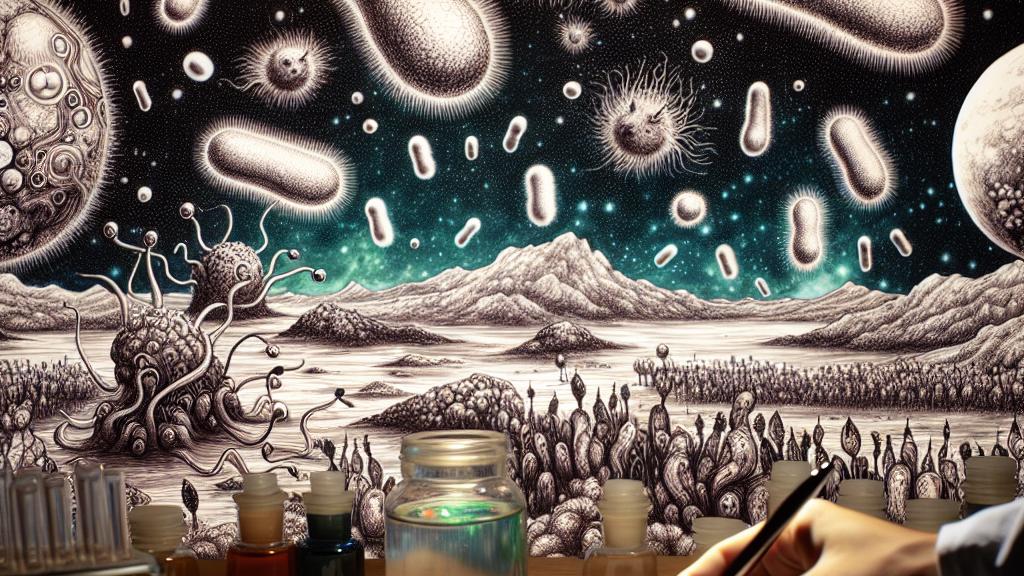Exploring How Earth Life Might Adapt to Other Planets
Overview
- Exciting research reveals Earth's resilient microbes could thrive in alien atmospheres.
- Atmospheric composition is a game-changer in determining exoplanet habitability.
- Innovative microbial policies are essential for future space colonization efforts.

Microbial Resilience on Exoplanets
Picture this: hardy Earth microbes, like E. coli, thriving on distant exoplanets. Sounds like science fiction, right? Yet, groundbreaking experiments are hinting that it may be entirely possible! In recent studies, scientists have exposed E. coli to various atmospheric conditions, including astonishing mixtures of carbon dioxide and methane. The results were impressive—these adaptable microbes demonstrated their ability to survive and even grow in environments previously deemed harsh. This discovery not only ignites our imagination but also emphasizes the incredible adaptability of life, suggesting that we might be closer to finding extraterrestrial life than we ever thought!
The Crucial Role of Atmospheres
Now, let’s explore why atmospheres are so vital! Historically, scientists defined the habitable zone by the presence of liquid water. While water is undeniably important, the atmosphere plays a critical role that we can no longer overlook. Take Proxima Centauri b, for example—this intriguing exoplanet is located just outside the standard habitable zone, yet scientists suggest that a thick atmosphere could help maintain liquid water on its surface. This unique balance might create a life-hosting environment. Imagine the possibilities unfolding as we broaden our understanding of living conditions across the universe; we could be standing on the brink of discovering life where we least expect it!
Rethinking Microbial Policies for Space Exploration
As we prepare for ambitious space colonization, our approach to microbial life must undergo a revolution. Instead of viewing the microbes we carry into space as mere contaminants, we should consider them as vital allies in our quest for survival. This radical shift in perspective could pave the way for innovative strategies, such as proactive inoculation protocols where Earth microbes are intentionally utilized to transform alien landscapes into thriving ecosystems. Imagine the scenario: our microbes enriching the soil, producing breathable air, and perhaps even enabling food production on new worlds! By embracing this exciting possibility, we have the chance to turn our microbial companions into essential tools for establishing life beyond Earth!

Loading...